#farm workers
Text
For children 12 and older in the United States, difficult, low-paying and dangerous work in tobacco fields for unlimited hours is legal, as long as it's outside school hours. Child labor laws are more lenient in agriculture than in other industries, and efforts to change that have repeatedly failed, leaving growers and companies to decide whether to set the bar higher than what's legally required of them. In the meantime, kids work, often trying to help their families make ends meet.
All the while, nicotine seeps into their skin. For all tobacco workers, but especially kids, that can cause nicotine poisoning, or green tobacco sickness, whose symptoms include nausea, vomiting, headaches and dizziness.
"People should understand that the food they're eating on a daily basis is harvested by oppressed people," Cuello says. The food and other agricultural products that everyone consumes are "touched by millions of people who sometimes have no choice but to send their children to work."
471 notes
·
View notes
Text

(Image trouvée sur internet).
Comment résister à l'envie de quitter son job de bureau de merde pour devenir ouvrier agricole ? Travailler au grand air, prendre soin des animaux, cultiver et aimer la terre, porter une combinaison, avoir ses bottes en caoutchouc pleines de boue, occuper ses mains à tout travaux manuels, transpirer, se reconnecter à la nature, se reconnecter à l'essentiel !
(Image found on the internet).
How can you resist the urge to quit your crappy office job to become a farm worker? Working in the great outdoors, taking care of animals, cultivating and loving the land, wearing overalls, having your rubber boots full of mud, keeping your hands busy with any manual work, sweating, reconnecting with nature, reconnecting with essential !
#worker#ouvrier#blue collar#workerwear#hard worker#workie#workers#workies#overalls#coveralls#farm workers#farmers#rubber boots#muddy boots#dirtyworker#dirty work#dirtyhivisworkie#dirty boots#ouvriers
84 notes
·
View notes
Text
"California will begin paying for free legal help with immigration for undocumented farmworkers who are involved in state investigations of wage theft or other labor violations, Gov. Gavin Newsom’s office announced this week.
The $4.5 million pilot program will provide qualifying farmworkers with referrals for legal help with their immigration status.
Roughly half of California’s farmworker population is believed to be undocumented. Fear of deportation and difficulties finding jobs can discourage workers from filing labor complaints or serving as witnesses in cases alleging unsafe work temperatures, wage theft, or employer retaliation for unionizing, officials said...
Respecting immigrant rights
Farmworkers in labor investigations who qualify for the new state program will receive a direct referral to legal services organizations that already offer immigration services, such as the Community Action Board of Santa Cruz County or the United Farm Workers Foundation, which spoke in support of the program.
The free legal services workers could receive include case review, legal advice and representation by an attorney, according to Newsom’s office...
Deferred deportation
State officials said the pilot program aligns with a new Biden administration policy that makes it easier for undocumented workers who are victims of labor rights violations to request deferred action from deportation. Because the federal Department of Homeland Security can’t respond to all immigration violations, it exercises “prosecutorial discretion” to decide who to try to deport.
State officials said they won’t ask for workers’ immigration status, but noncitizens granted this deferred action may be eligible for work authorization.
This year, California labor department officials began supporting undocumented workers’ requests for prosecutorial discretion or deferred action from federal immigration officials, including when employers threaten workers with immigration enforcement to prevent workers from cooperating with state investigators.
“The Department of Industrial Relations’ Labor Commissioner’s Office … was the first state agency to request deferred action from DHS for employees in an active investigation, and that request was successful,” Hickey said. “This is an important process for undocumented workers to be aware of.”"
-via CalMatters, July 21, 2023
#labor#immigrant rights#immigration#migrant workers#farm workers#wage theft#exploitation#labor rights#workers rights#deferred action#legal system#legal aid#california#united states#us politics#undocumented#undocumented workers#labor trafficking#work permit#good news#hope
157 notes
·
View notes
Text
Jamaican migrant farm workers in Niagara Region wrote an open letter to Jamaica's Ministry of Labour requesting more support in the face of what they call "systematic slavery," days before a migrant worker died in Norfolk County.
Garvin Yapp, 57, of St. James, Jamaica, was killed on Sunday in an accident with a tobacco harvester at Berlo's Best Farm in Norfolk County, two hours southwest of Toronto.
[...]
Two other Jamaican workers and a Mexican worker have died this week as well, according to Migrant Workers Alliance for Change (MWAC).
'Feels like we are in prison'
"As it currently stands, the Seasonal Agricultural Workers Program (SAWP) is systematic slavery," the workers wrote in their open letter.
[...]
Workers wrote they were scared of sharing their grievances with Samuda directly for fear of being kicked out of the SAWP. They also said that workers from Mexico and the Philippines share the same grievances.
Workers described housing conditions as so poor that rats eat their food. They live in crowded rooms with zero privacy with cameras, and lack dryers to dry their clothes after it rains, they wrote.
"It feels like we are in prison," the letter reads.
On working conditions, workers wrote they're "treated like mules" and punished for not being quick enough. They said they're exposed to dangerous pesticides without adequate protection, and their bosses are verbally abusive.
"They physically intimidate us, destroy our personal property, and threaten to send us home," the letter reads.
"This is very much the reality of the migrant farm worker program in this country," MWAC's executive director Syed Hussan said. "Working in farms in Canada is a human rights disaster."
#submission#workers rights#migrant workers#farm workers#racism#seasonal agricultural workers program#cdnpoli#canada#canadian politics#canadian news#canadian
947 notes
·
View notes
Text

Leopold Pollak (1806-1880)
"The Grape Picker" (1852)
Oil on cardboard
#paintings#art#artwork#genre painting#female portrait#leopold pollak#oil on cardboard#fine art#austrian artist#portrait of a woman#grapes#fruit#farm workers#farmer#farm#clothing#clothes#italian woman#red#white#pretty#aesthetic#aesthetics#1850s#mid 1800s#mid 19th century#dark hair#dark eyes#jewelry#jewellery
569 notes
·
View notes
Text
I wholeheartedly agree with this TikTok, but please note the extremely racist notion that white people’s bodies weren’t built for hard labor, but Mexican bodies are
But yeah, Republicans keep doing this and the result is always the same
For example:
👉🏿 https://www.tumblr.com/odinsblog/165866011590/sale-aholic-perhaps-the-people-that-claim
👉🏿 https://www.tumblr.com/odinsblog/163993978155/innermonologue-odinsblog-got-milk-not
Hm … It’s almost like the cruelty is the entire point
72 notes
·
View notes
Text




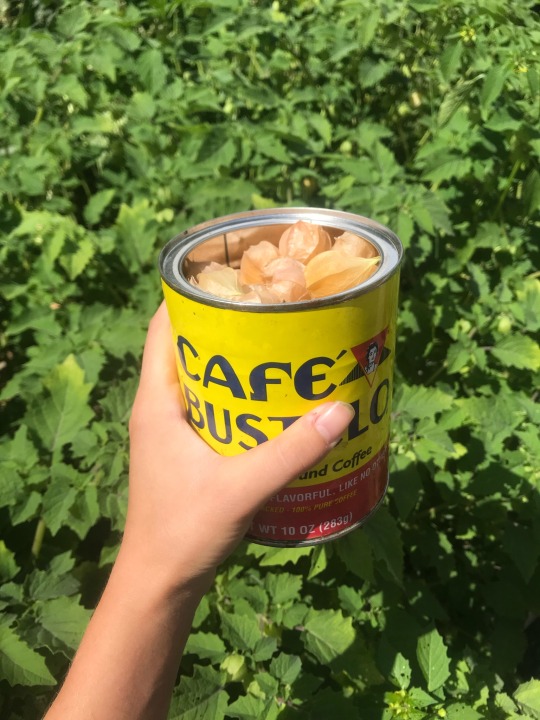
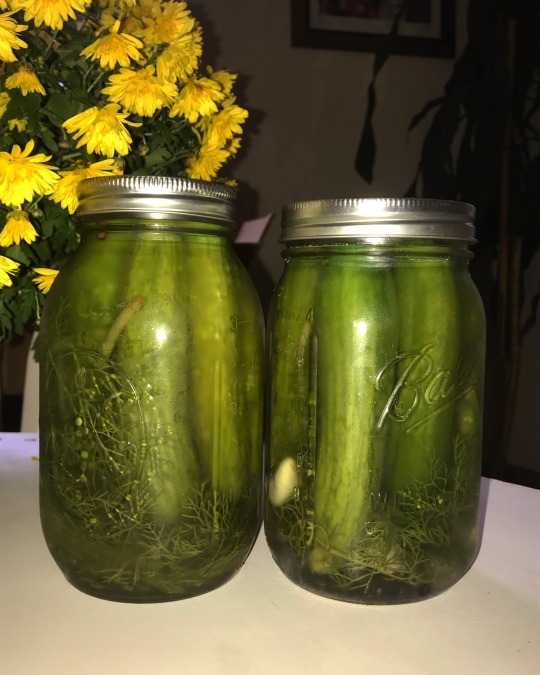



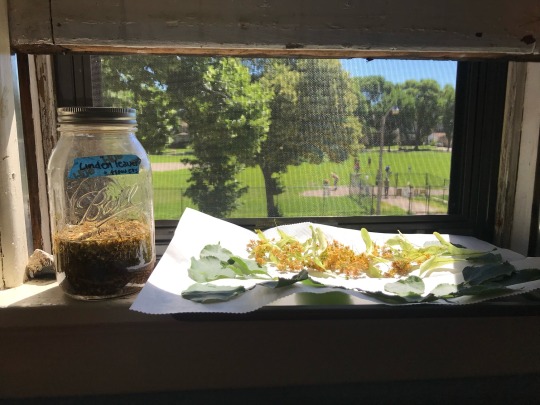
Mourning the bitterness of the end of the season but celebrating the rest in my bones
#garden#pumpkin#squash#farm workers#vegetables#hardwork#paysoff#pickles#beekeeper#beekeeping#honeycomb
20 notes
·
View notes
Text
Happy Larry Itliong Day from the California State Library! Itliong was vital to the farmworkers' movement, alongside Cesar Chavez and Dolores Huerta.
23 notes
·
View notes
Text
"The category of race was also critical to the second pillar of the CFU’s [Canadian Farmworkers Union] organizing mission: ridding the industry of contractors. Contractors would supply the labour force for the farmers and, in many cases, they held as much power as the farmers. The contractor was responsible for hiring a workforce, maintaining discipline, and making payments. The farmer would not pay the workers directly; instead, the farmer would pay the contractor who, in many cases, would retain the money until the end of the season.
In many instances, the contractor was also responsible for transporting workers between the field and their homes. Since labour contractors were trying to maximize profits, the vehicles they used to transport workers predictably violated many road safety standards. As Chouhan remembers, his first contractor: “came to pick me up in an Econoline van which had no seats in it, there were people sitting on the floor which was quite a shock [laughs]. No seat belts, no nothing.” Many workers have been killed due to accidents in these unsafe vehicles, and, as recently as 7 March 2007, three farmworkers died in a rollover accident while riding in an overcrowded vehicle between Abbotsford and Chilliwack.
Often, contractors were from the same social and ethnic circles as the labourers whom they employed. Charan Gill identified a “colonial mentality” in comments made by farmworkers. Since the contractors who provided them with work shared familial and cultural ties with them, some of which could be traced back to Punjab, many farmworkers did not want to stand up to the contractors. Fears of losing jobs and housing were very real, and such losses could jeopardize their immigration status. Contractors who came from the same community as the workers could manipulate the latter into believing they were on their side, and, because of this, Gill notes: “in spite of our efforts, individual interests [of workers] sometimes invalidated collective interests [of their class]” because some of those workers aspired to be contractors.
Simply getting safety information to farmworkers was also difficult. Since many of the workers could not read or write in English, and some were illiterate in their own languages, they were often dependent on information from the farmer and the contractor. Contractors could intentionally mislead, omit certain information, or outright lie to their workers about their legal rights. This delayed organizing efforts. To counter this information block, organizers would try to go to local temples on the weekends, where many workers went to pray. However, the labour contractors also had control over the temple executives, so organizers were often refused the right to speak. Frustrated, the organizers developed a two-part strategy. First, they would have “kitchen meetings” in which the organizer would contact one worker for a meeting in their home, and that worker would contact neighbours and friends, so “that way [they would] not [be] afraid to be seen by a labour contractor or in the temple or in a public place.” Second, because many families used the temples for social events, the organizers would ask family members to invite the CFU and thus circumvent the temple executives as organizers of social events had the “absolute right to invite anyone they want[ed].”
These strategies helped the CFU reach out to potential members and to provide valuable information regarding their legal rights. Unfortunately, despite the efforts of the CFU, contractors are still a part of the industry to this day, and anyone driving through the agricultural areas of British Columbia’s Lower Mainland can witness the painted-over shuttle buses that daily transport farmworkers from home to field."
- Nicholas Fast, ““WE WERE A SOCIAL MOVEMENT AS WELL”: The Canadian Farmworkers Union in British Columbia, 1979–1983,” BC Studies. no. 217, Spring 2023. p. 44-45.
#canadian farmworkers union#participatory democracy#union organizing#farm workers#agricultural workers#indian immigration to canada#immigrant workers#racialized workers#farming in canada#working class struggle#academic quote#strike#union politics#labour contracting#exploitation#reading 2024
8 notes
·
View notes
Text

14 notes
·
View notes
Text
Anyone have any ideas for accommodations and stuff for a job like vet assistant or stable hand or dog training or if it would even be possible to accommodate me with the jobs I want? I'm not sure working would work out for us but I really would like to work with horses or other animals. We need to be reminded of a lot of stuff, we stim constantly (though when brushing horses it calms), we can't stand for long, we meltdown and I'm not sure if we would or wouldn't at the job, require ear defenders, we would need to be supervised at least with someone being in the same building and checking in on us often to remind what I should do but having someone in the same room telling us what to do is better, we can't speak, we would definitely only be able to work for a few hours and wouldn't be able to work everyday, we can't bend over or lift heavy things, would need to bring our service dog with us (dont have one yet), we also freeze up and unable to do anything but i think when im doing something and i know what and how to do it that it would happen less often during those times but it would still happen, not able to handle stuff like finances and math or stuff like scheduling
#high support needs#autistic#jobs#job help#physically disabled#disability accommodations#farm workers#vet assistant#dog trainer#Work
3 notes
·
View notes
Text
An inmate in Colorado has become the first human in the US to test positive for the H5N1 strain of bird flu, amid the worst outbreak of the virus in seven years and a cull of millions of poultry in dozens of states.
The unnamed prisoner contracted the infection during a work release assignment at a farm in Montrose county where workers were euthanizing an infected flock, the Colorado department of public health and environment said.
Many farm labourers are incarcerated individuals who are forced to work for minimal pay and often put to work through convict leasing programs or programs intended to "rehabilitate" through "work".
235 notes
·
View notes
Photo
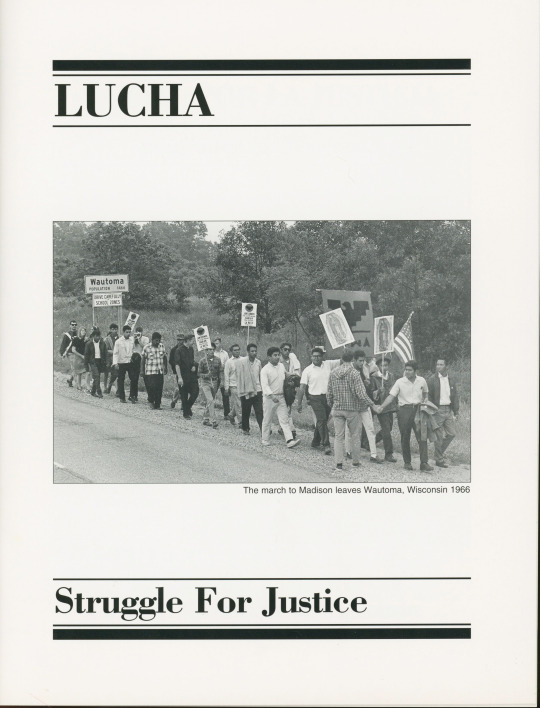
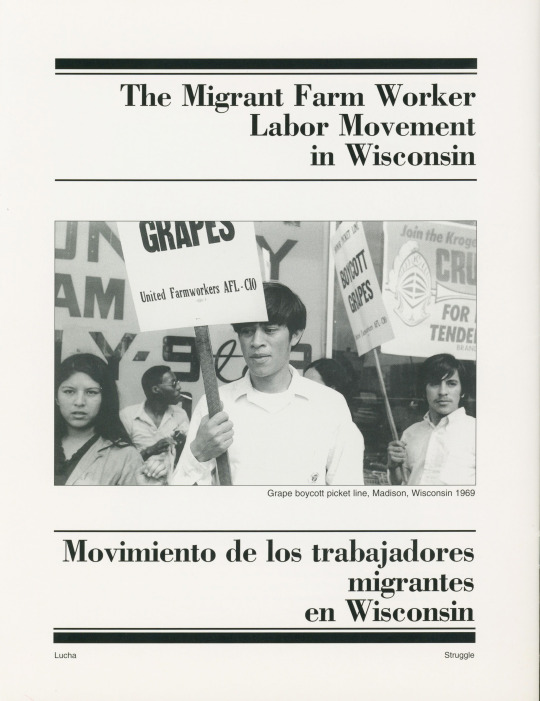
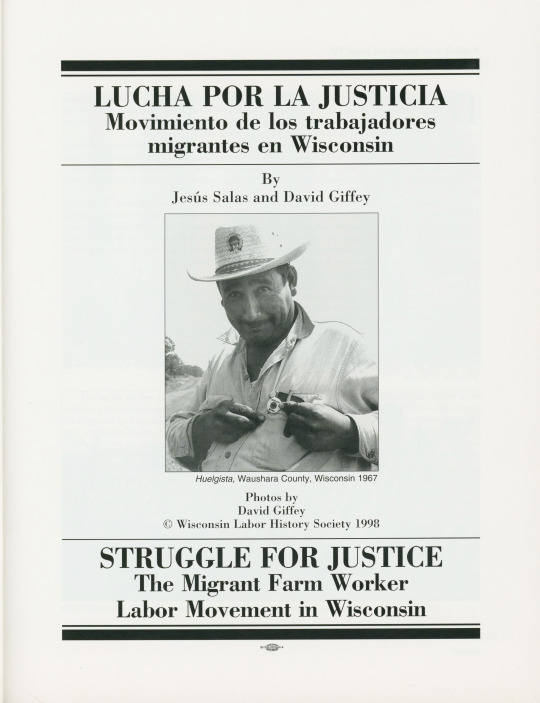
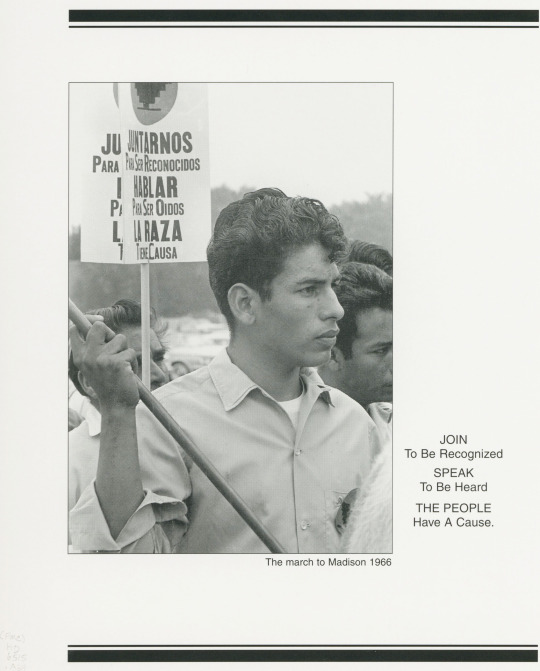
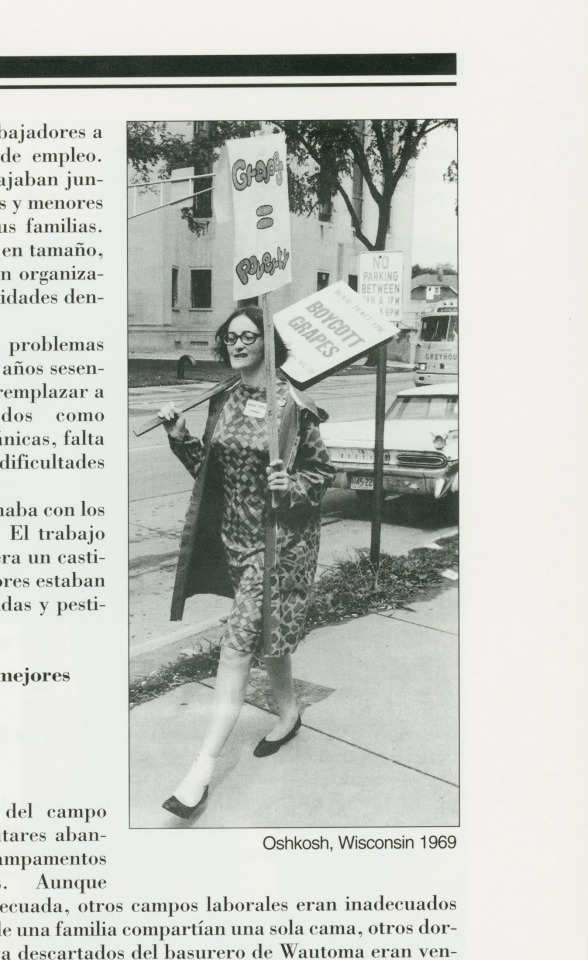



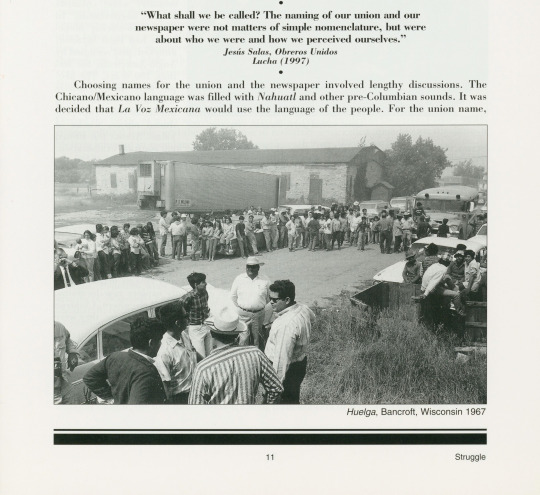
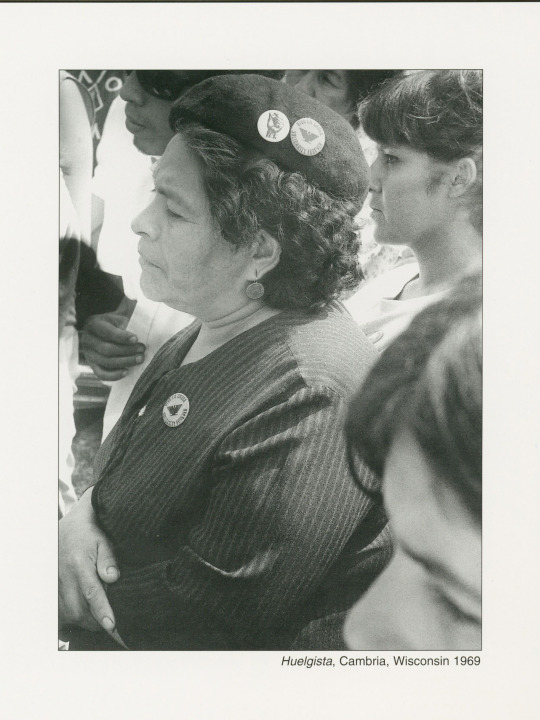
Labor Day 2022
Today is Labor Day, a holiday in celebration of the workers of the United States and the struggle of the Labor Movement for the rights and freedoms workers have today. It is a good day to remember that for many the fight is not over, and that we should support our fellow workers whenever possible.
In that light, we’re sharing Lucha por la Justicia / Struggle for Justice published by the Wisconsin Labor History Society in 1998. The book is about the migrant farm worker labor movement in Wisconsin, and in particular strikes and boycotts of the mid-1960s. Agricultural workers, and especially those who are migrant workers, are one of the least protected groups of workers in the country. in 1966, migrant workers in Wisconsin marched 80 miles from Wautoma to Madison to present their demands to the state government. Among their demands were improved housing, a $1.25 minimum hourly wage, and accident and hospitalization insurance. Agricultural workers in Wisconsin also participated in and raised awareness for the Delano Grape Strike of the late 1960s.
Just last week, members of United Farm Workers union in California marched 335 miles from Delano to Sacramento in support of a bill that would make it easier for agricultural workers in the state to vote in union elections. Currently they can only vote in person in union elections, which creates opportunities for retaliation and intimidation by farm owners against those who vote to unionize and prevents migrant workers from voting if they are not in the state at the time of the election. Renowned internet labor supporter and cat Jorts supported their march by marching his furry little paws around his place of employment (which is unionized, fyi). Unions are one of the best ways for workers to make sure that they are not exploited and allow them to collectively bargain with their bosses for fair wages and treatment.
So, as we enjoy our long weekend and most likely grill some burgers and hotdogs and enjoy some sweet corn from a roadside stand, let’s not forget the workers who literally make it possible for us to have food on our tables (or any workers!).
-- Alice, Special Collections Department Manager
#Labor Day#unions#strikes#huelga#Delano Grape Strike#United Farm Workers#Wisconsin Labor History Society#farm workers#agricultural workers#Jorts the Cat#Jorts and Jean#Jorts#holidays#Alice
79 notes
·
View notes
Photo

The curriculum has been created to teach, foster, and promote awareness of the global and environmental issues that impact all living beings that share planet Earth.
find it here at https://www.teacherspayteachers.com/Product/The-Earth-Studies-Curriculum-8918154 or at https://sharemylesson.com/teaching-resource/earth-studies-curriculum-402960
#earth science#environmental studies#nature studies#culture and society#ecology#ecosystems#water conservation#agriculture#farm workers#collectives#urban farming#lesson plan#activities#curriculum#social studies#social science
38 notes
·
View notes
Text

To really understand the legacy of racism and exploitation in the U.S. Agricultural industry, we need to go back to the Fair Labor Standards Act, which became law nearly a century ago, when Franklin D. Roosevelt was president.
This law fundamentally changed working conditions in the U.S., it gave us a minimum wage, a 40-hour work week, overtime pay –you know, the good stuff.
But these benefits didn’t apply to farmworkers, who at the time in the South were overwhelmingly Black.
In fact, you can draw a straight line from slavery, to the Fair Labor Standards Act, to the conditions we continue to see in agriculture today. Nearly a century later, farmworkers across the U.S., mostly Latino immigrants now, are still denied even the most basic federal protections, such as water breaks or access to shade in extreme heat. For many families, the effects of these racist exclusions are real, they’re tangible.
At the Summit of the Americas in Los Angeles last year, President Joe Biden outlined his plan to reduce the number of migrants seeking asylum at the Southern border. His administration, Biden said, would help “American farmers bring in seasonal agricultural workers from Northern Central American countries under the H-2A visa program.”
What does that mean for a program that’s already plagued with wage theft and abuse?
Since Biden took office in January of 2021, he’s turned “safe and orderly migration” into a kind of mantra. He says it all the time. And just in February of that year, 2021, the White House assembled working groups to discuss the H-2A program. The idea is to divert asylum seekers from the Southern border and into this program. Here’s Biden talking about the plan last summer:
President Biden: “And on this jobs front, our Department of Agriculture is launching a pilot program to help American farmers bring in seasonal agricultural workers from Northern Central America countries under the H-2A visa program. To improve conditions for all workers.”
Here’s the main issue with that. The Biden Administration wants to offer this temporary worker program to migrants who are seeking asylum at our Southern border. A program that is riddled with abuse and trafficking is being offered to people who are fleeing violence and trafficking.
“They’re only gonna be able to stay in the United States for 6, 7, 8 months outta the year. What happens during those other months of the year? Uh, they have to go back to their home country and they’re gonna be going back to a country that they fled.
Maybe because they were being persecuted, somebody in their family was murdered, you know, you’re gonna send them back to that situation and you’re gonna send them back to that situation with dollars in their pockets, which I think is just gonna make them targets for extortion.”
—Latino USA, Head Down
• Part 1, https://play.stitcher.com/episode/302009156
• Part 2, https://play.stitcher.com/episode/302310113
#politics#joe biden#immigration#asylum seekers#refugees#racism#h2a visas#farm workers#workers rights#h-2a visas#mexico#wage theft#temporary foreign workers
52 notes
·
View notes
Text

Strawberry Fields
64 notes
·
View notes